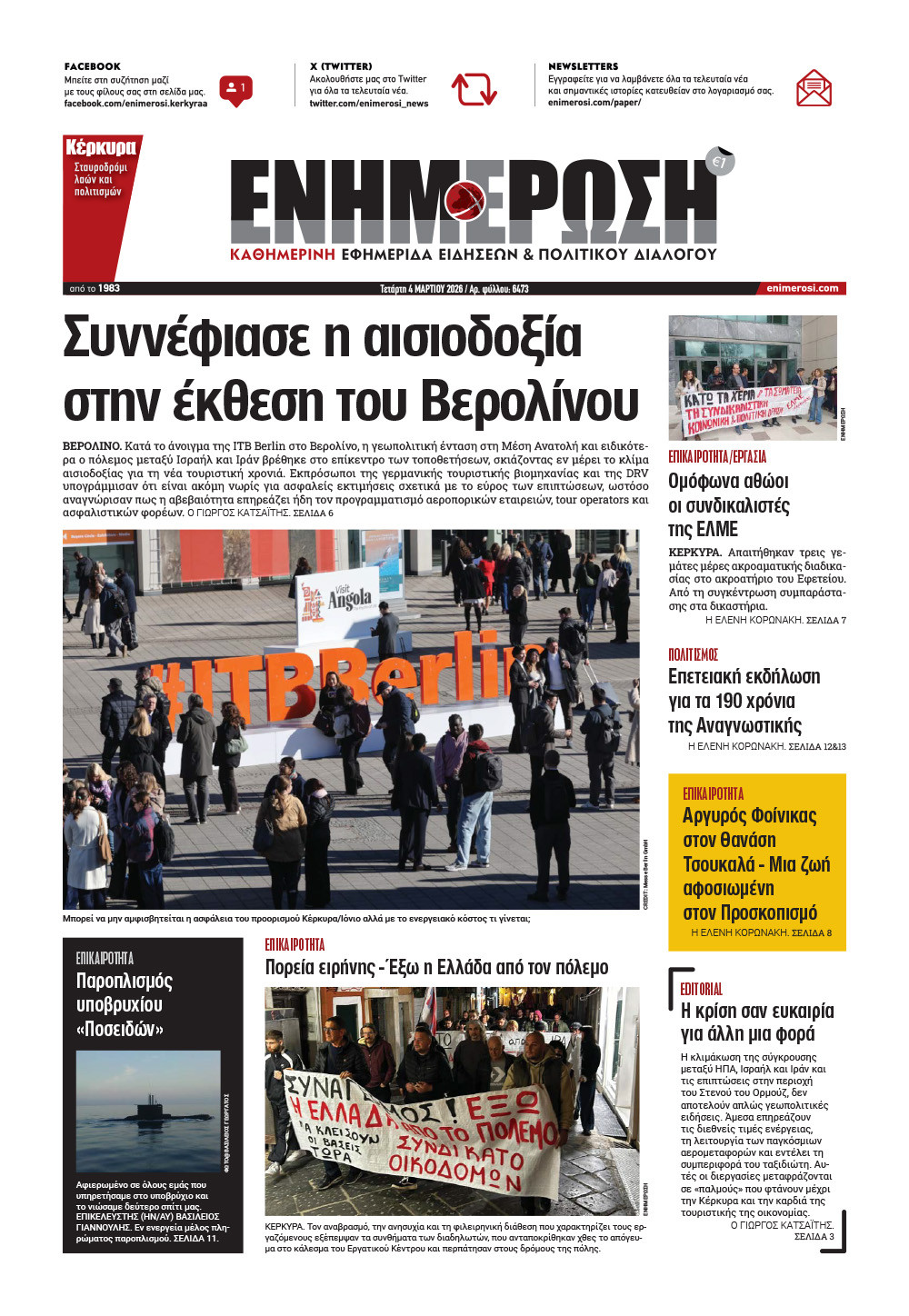Corfu tourism workforce shortage

CORFU. In catering and leisure alone there are approximately 2,000-3,000 unfilled positions.
The high level of tourism in Corfu exceeds by far the capabilities of the workforce and the new season has already started with significant shortages in critical positions.
In the catering and leisure sectors alone there are approximately 2,000-3,000 unfilled positions, according to the President of Corfu Old Town Professional Catering and Entertainment Association, Yiannis Vlachos. Many businesses have stated their inability to cover these positions due to staff shortages, and others remain closed until they find workers.
Mr. Vlachostold Enimerosi that 75% of professionals operating in the old town are looking for personnel and cannot find it, and the situation is similar outside the town. "The catering sector currently has a big problem with personnel," he said. "Whether they need one person or a whole team, they cannot find them. We have cases where some have closed their businesses because they couldn't find staff. Dishwashers, waiters, cooks, and their assistants are being sought, but in vain."
The aftermath of the pandemic, which altered the labour market, is still evident and even the staff available in many cases is not trained. "The tourism industry is constantly on the rise in Corfu," Mr. Vlachos said. "We are called upon to face a mass of incoming tourists, but we cannot provide the appropriate services due to the lack of staff."Hotels
The shortage of workers in the hotel industr, which has become particularly noticeable since last year, is causing concern. According to the updated study by INSETE, published on 23/3/2023, entitled "Employment and labour shortages in Greek hotels at the peak of the 2022 summer season", 60,225 job vacancies were recorded last year, out of the 262,981 positions that are provided for in hotel organisational charts.
Based on the study, in the Ionian Islands, the vacancies amounted to 8,378 positions. Faced with the new deadlock, Corfu hoteliers see the possibility of filling these positions with imported workers as a particularly positive step, based on the ministerial decision that officially includes tourism in the sectors that can accept citizens from third countries outside the EU for employment, for the first time.
However, the law that will clearly specify both the overall number of migrant workers allowed in each region, as well as the conditions, has not yet been voted on. "The process has not yet begun," Corfu Hoteliers' Assocation President Babis Voulgaris told Enimerosi. "It is a solution, however, given that there is no staff to fill the positions. There is a big problem and Corfu hoteliers are expected to seek personnel in this way."Positions with shortages
Chambermaids, waiters, dishwashers, cleaning staff, general workers and kitchen staff are mostly the jobs with the biggest shortages. Some hotels have already opened, while others plan to open before Easter, with the majority beginning the new season in May, without having filled all positions adequately. "The problem is multifactorial," said Mr. Voulgaris. " Many workers in tourism left due to the pandemic and turned to other sectors. Working conditions are difficult, but not bad, though. It is a demanding job."
Number of available workers not increasing
According to the President of the Corfu Union of Hotel and Food Service Employees, Stamatios Pelais, tourism in Corfu has been continuously increasing since 2011, with the number of tourists having more than doubled, but the same hasn't happened with the workforce.
He said that in the entire spectrum of food service and tourism, there are 20,000 employees, of which 6,000 are hotel employees. "There is recycling of personnel and the numbers are not increasing dramatically."
"Corfu does not have enough personnel available for the tourism industry," he added."For years now, there has been a shortage of personnel. The work is intensive, employers do not take safety measures for their employees because it is costly and salaries do not cover the needs of the employees."












